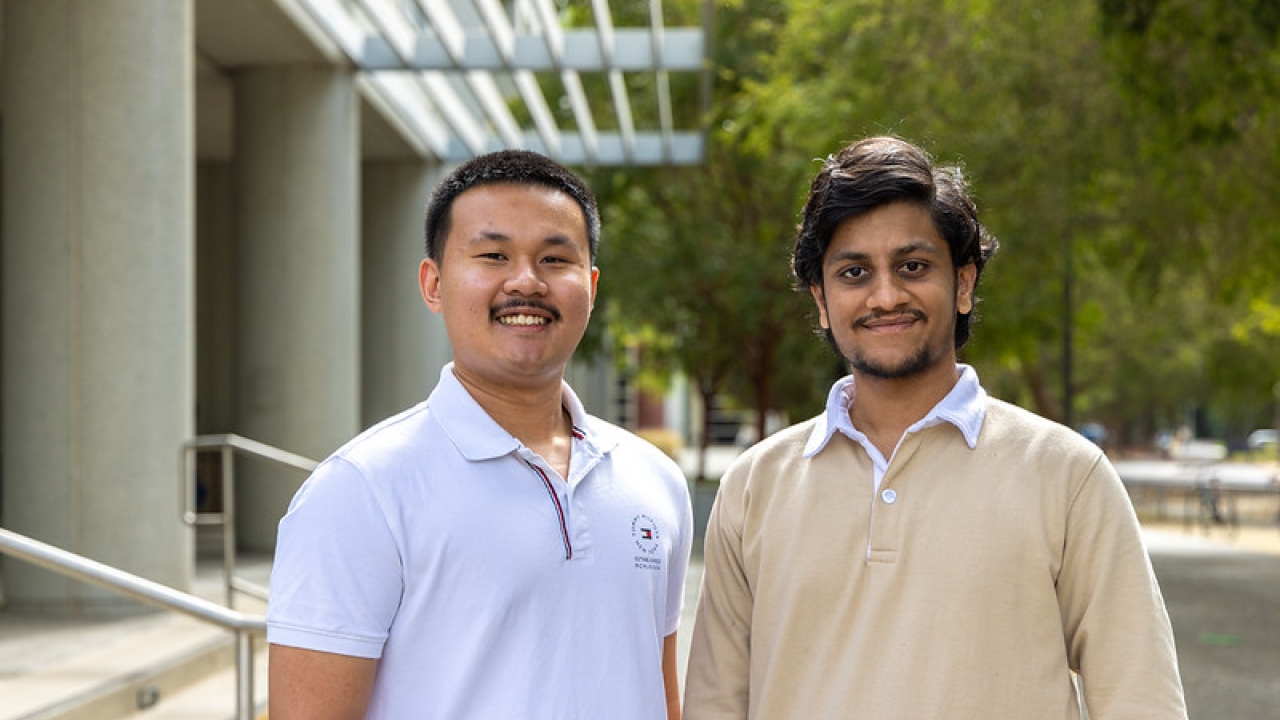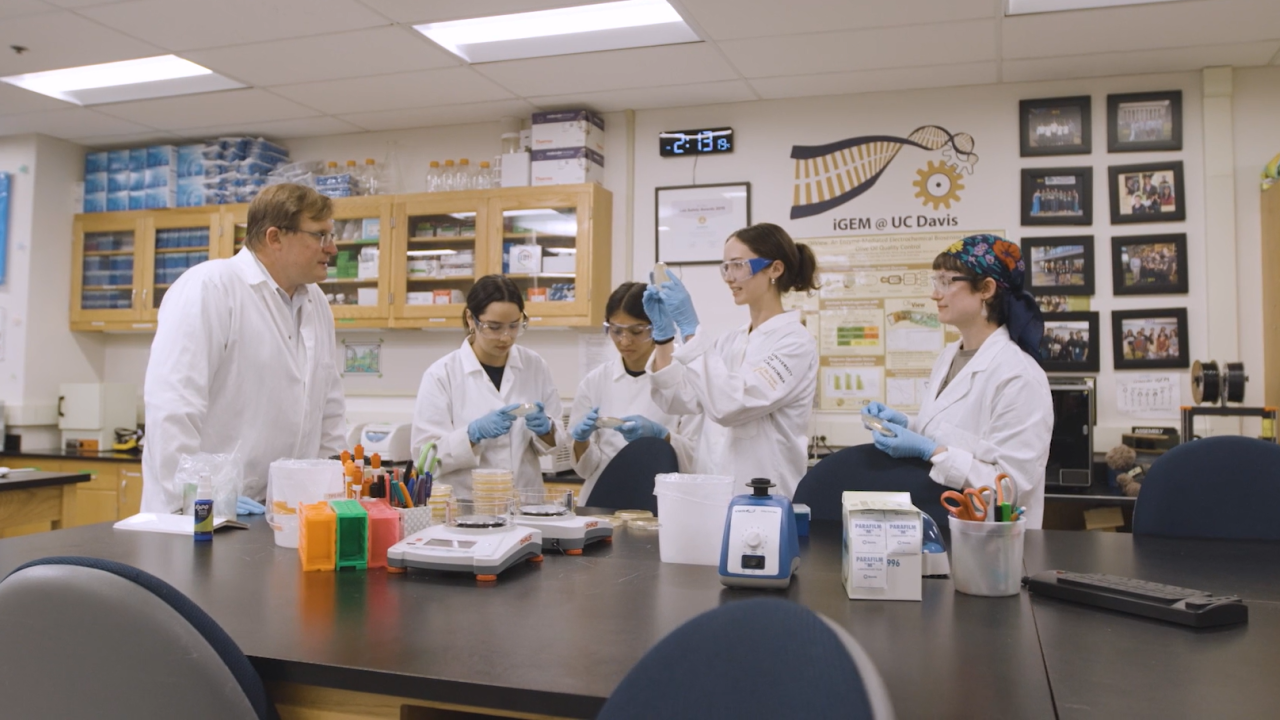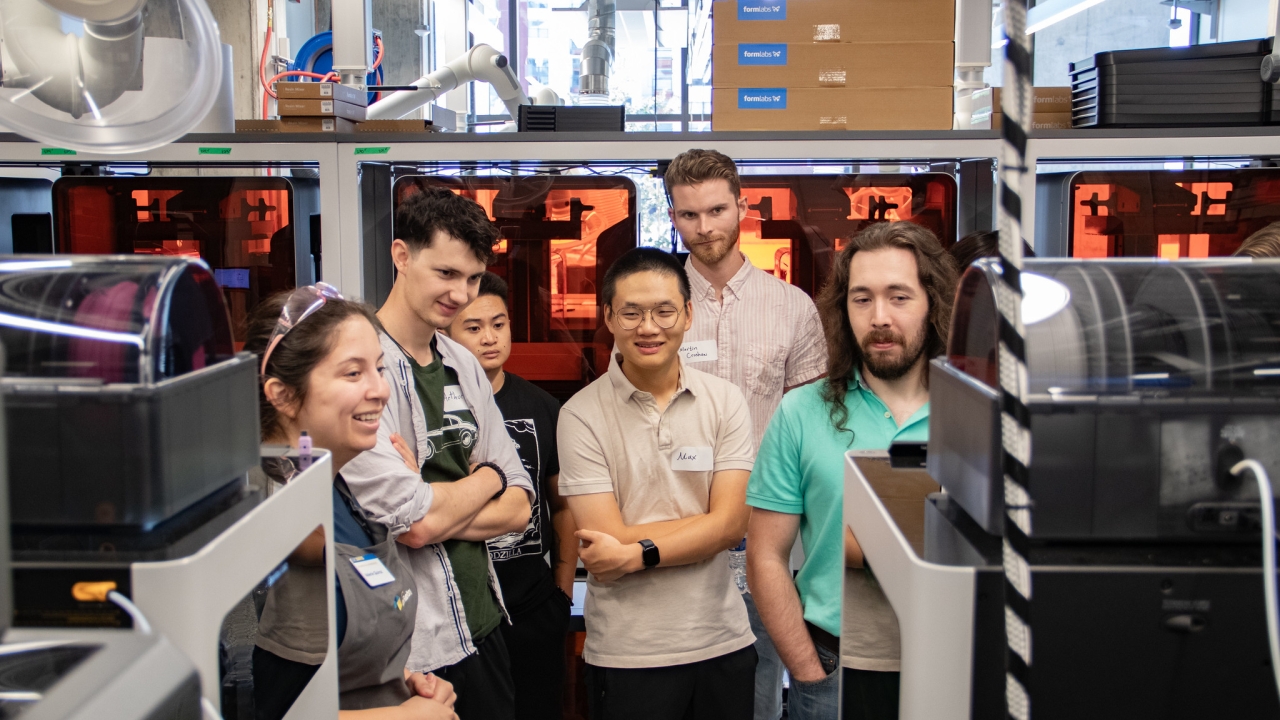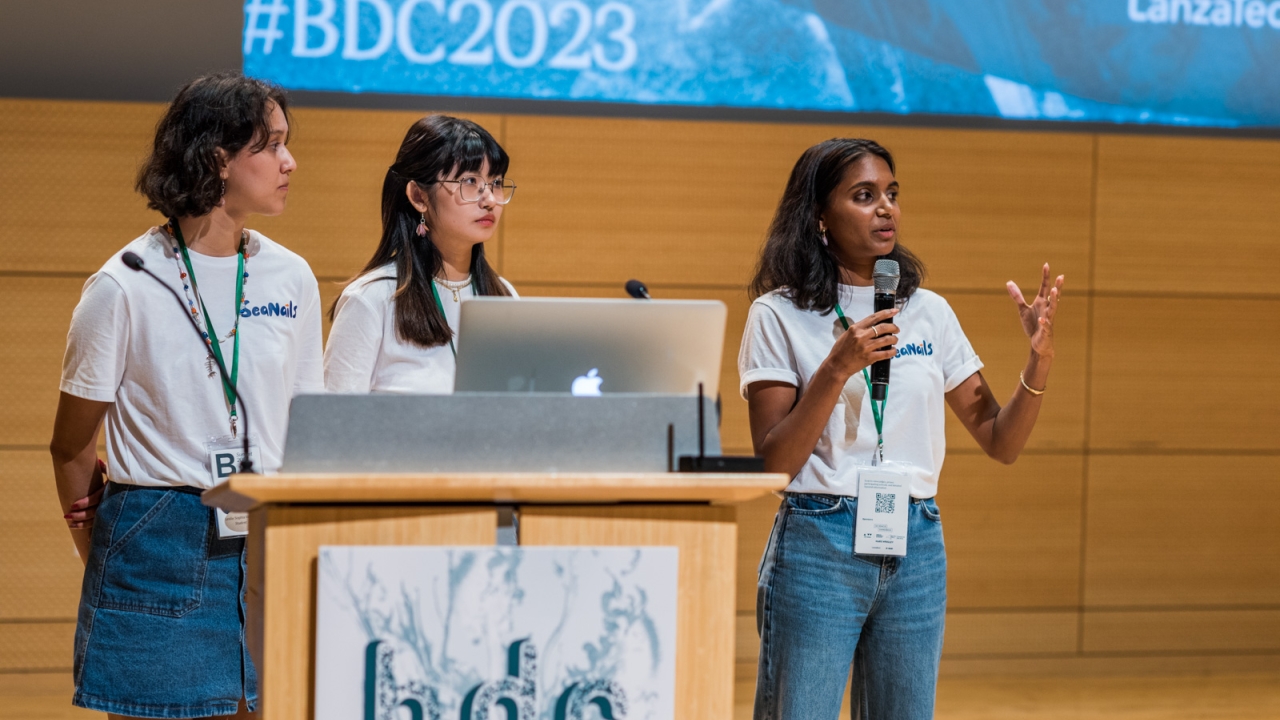
From Classroom to Startup: ENG 108 Builds Student Success
Certificate in Entrepreneurship
The Certificate in Entrepreneurship fast-tracks your career by providing essential training and practical experience, connecting you with campus technological expertise for success in entrepreneurship.
With the help of the Student Startup Center and a course within the College of Engineering at the University of California, Davis, undergraduate students Leslie S. Valdez and Nitin Kanchi have taken lessons in entrepreneurship and innovation from the classroom to the startup space.
ENG 108 — "Launching a Company" is an engineering course in which student teams learn good startup practices, such as using customer development to turn product ideas into companies. The class is part of the Certificate in Entrepreneurship experience facilitated by the UC Davis Student Startup Center, which provides resources, information and support to students looking to kickstart their businesses.
Because of ENG 108 and the help of the Student Startup Center, both Valdez and Kanchi are leading successful startup ventures.
SeaNails: Nails for People and the Planet
Valdez, a fourth-year design student, is applying lessons from ENG 108 to her startup, SeaNails.
SeaNails transforms the leftover waste from Sacramento-based alternative leather company Aquaborne (think: fish skin as textiles) into sustainable nail products. Valdez co-founded SeaNails alongside former UC Davis students Sarika Kumar '23, a design major, and Yuwei Chang '23, a biological sciences major.
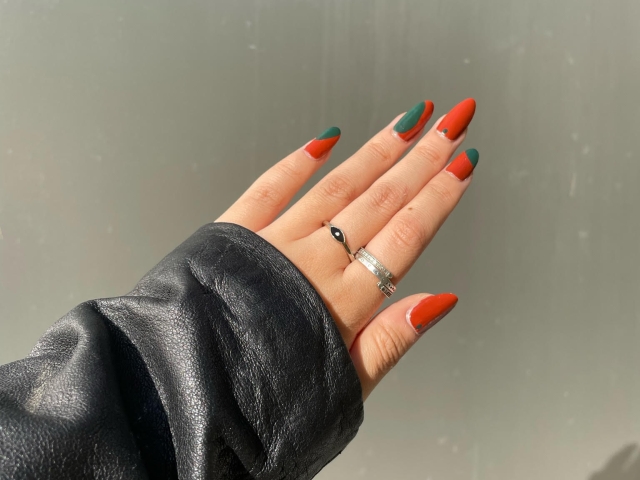
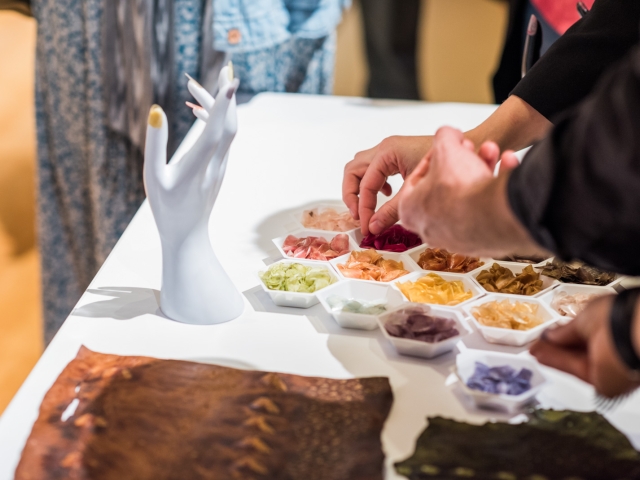
The team met and first conceived their idea in a biodesign class at UC Davis. After combining their ideas for a nanocrystal nail polish and a biodegradable resin, they decided to further explore manufacturing beauty products.
"Currently, a lot of nail products need specific composting conditions and are full of chemicals, so they're not sustainable in any way," Valdez said. "We're trying to be the first to create healthier fake nails."
Though the team's idea first came from a biodesign class, taking ENG 108 supplied Valdez with the knowledge to turn the idea into a business.
"I really had no background in entrepreneurship at all," said Valdez. "After we started SeaNails, I needed to learn more."
For ENG 108, Valdez interviewed nail product users and salons, including an eco-friendly nail salon in Sacramento. This gave the SeaNails team practical insight and concrete data to guide the focus of their startup.
"We came up with statistics that gave more structure for us to make this not just a class project but a business," said Valdez.
The most important thing Valdez learned was to have the courage to try and fail.
"One thing that was talked about the entire course was to not be afraid to fail," Valdez said. "The sooner you fail, the sooner you'll succeed."
Since she took the course, SeaNails has participated in the Student Startup Center's accelerator program, PLASMA, which is helping the team hone their skills for applying to larger accelerators and sourcing funding for their business.
This month, Valdez represented SeaNails at the Little Bang! Pitch + Poster Competition hosted by the Mike and Renee Child Institute for Innovation and Entrepreneurship. Valdez created a poster detailing the startup and delivered a 90-second pitch, which won $1,000. The startup was also selected for the 2023 Biodesign Challenge Summit, where the team presented their project at the New York Museum of Modern Art, ending up as a top eight finalist.
As SeaNails moves forward, Valdez knows that she will always be learning.
"For me, running a business is still very new," Valdez said, "but I'm not allowing that to hinder me from knowing more."
Davis Curry Club: Indian Food on a Student Budget
As a freshman, Kanchi, a second-year data science student, noticed that many students lack access to nutritious, home-cooked meals.
"It was not just me. A lot of people had this problem," Kanchi said. "Especially being Indian, I missed my mom's food: food from home."
Kanchi's parents own a restaurant in Folsom, where they serve vegetarian South Indian cuisine. His knowledge of the food industry and support from his parents gave him the confidence to launch his business.
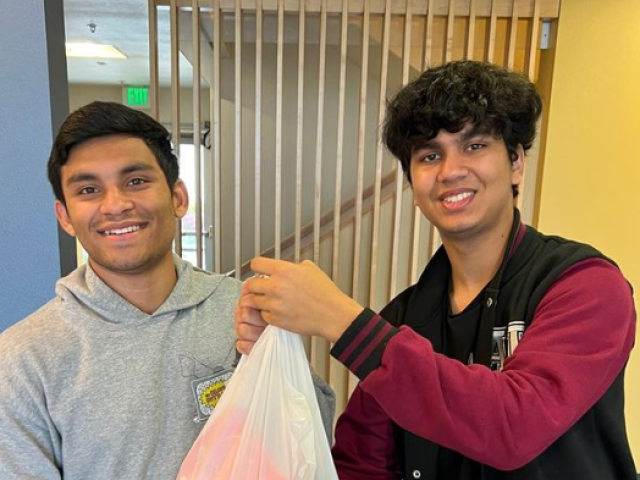
In 2022, he started the Davis Curry Club, providing vegetarian North and South Indian food at student-friendly prices. Though he was already equipped with restaurant-owning parents and a brief first run of his startup, ENG 108 solidified the skills he needed to make Davis Curry Club take off.
For the course, Kanchi conducted multiple interviews to familiarize himself with the wants and needs of his customers, giving him hands-on experience in identifying problems and the steps to address them.
"Customer interviews were something that I didn't do when I first started," Kanchi said. "Being in ENG 108, I learned that customer interviews are very important, and I applied that to figure out what the problems were for my customers."
Another feature of the course that impacted Kanchi was the "$99 Profit Challenge." At the beginning of the course, students invested about $100 in course materials. For the rest of the quarter, they started a business or side hustle to make $99 in profit to see a return on their initial investment. Students completed weekly checklists and prepared a presentation on their business at the end of the quarter.
"I learned how to structure myself when trying to meet deadlines or trying to achieve a goal," Kanchi said. "And I found out that, even though I'm solving a broad problem, there are also sub-problems that I have to address,"
One of these "sub-problems" for the Davis Curry Club was the cost of delivery. Because students off-campus require deliveries that often come with expensive fees on most mobile apps, Kanchi decided on a flat fee to make delivery more convenient and affordable.
"ENG 108 was where I started making major changes to Davis Curry Club, like having drivers, getting orders out for deliveries and improving our website."
When it comes to growing a successful business, Kanchi knows that the key lies in addressing the issues that customers need solved.
"Taking ENG 108 definitely opened my eyes about the biggest thing in any startup: finding a problem is king," said Kanchi. "In the end, if we solve a problem, that's what any entrepreneur is looking for."
Learn more about these startups at @daviscurryclub and @seanailsofficial on Instagram, or check out SeaNails' website.
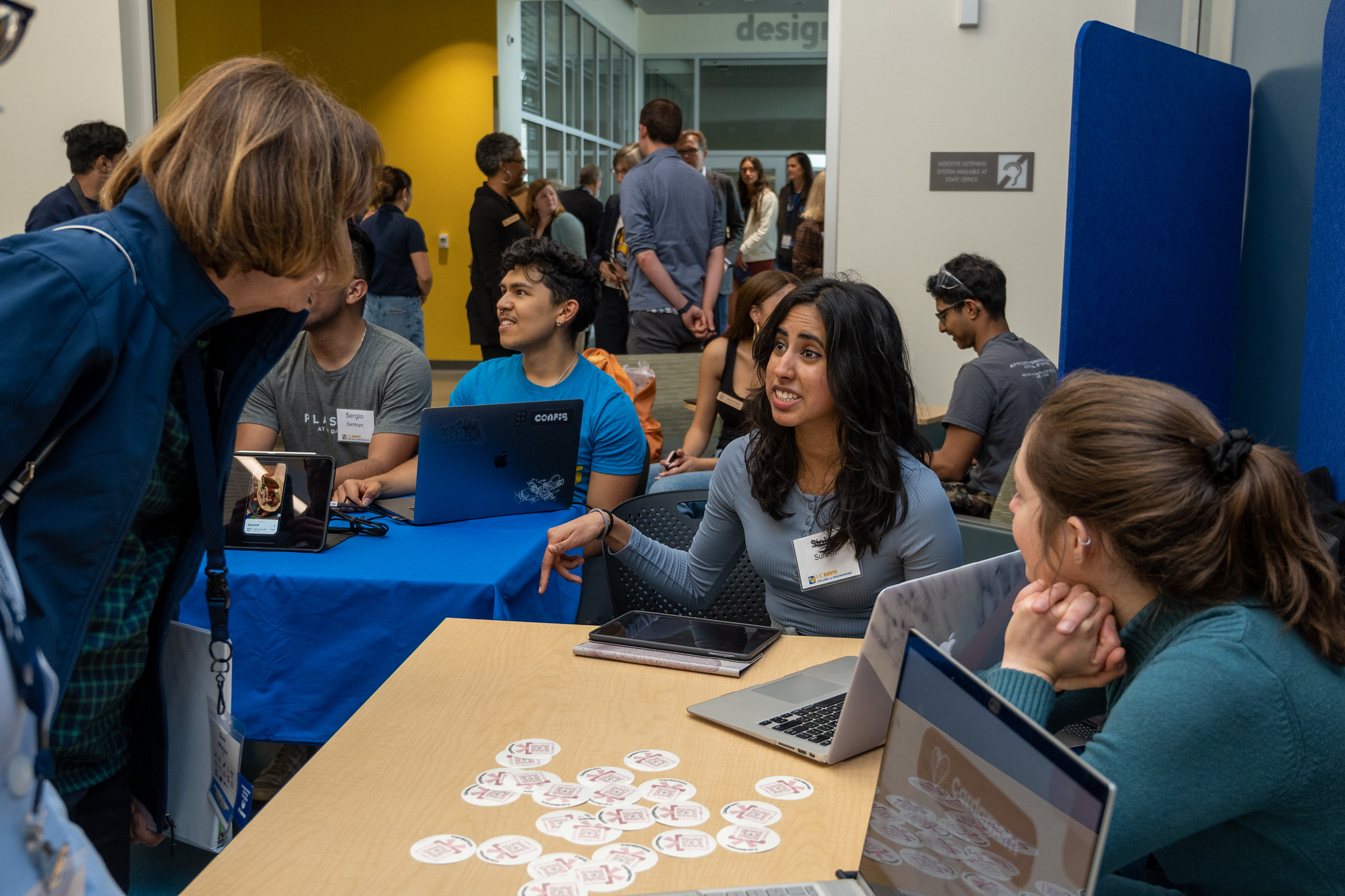
Sign up for the SSC's weekly newsletter
Students interested in learning more about startups, from launching a company to being better employees, should consider enrolling in any of the Student Startup Center's unique classes, like ENG 108. Find more details by signing up for the center's weekly newsletter here.


